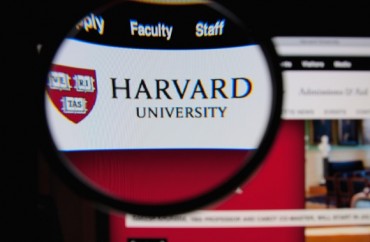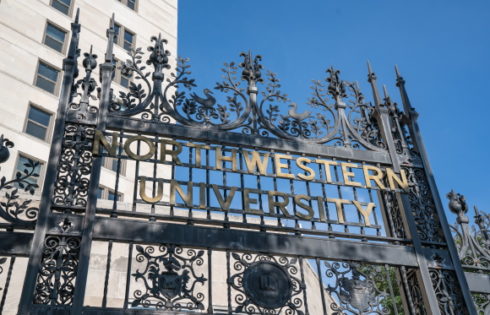
Community leaders support the policing tactics, work with police to make changes
Harvard University student activists successfully convinced the Ivy League school to cancel a course on an innovative policing strategy that was slated to be offered by an engineering professor who is also colonel in the Army Reserve.
But the course — and the unique policing strategy that was to be the focus of the class — is supported by residents and business owners of Springfield, Massachusetts, where it is currently being used.
They have expressed outrage over its cancellation, and the professor slated to teach the class has vowed to work to offer it this fall.
The class, “Data Fusion in Complex Systems: A Case Study,” was to be led by Kevin “Kit” Parker, a bioengineering professor who during his military career served in Afghanistan.
The course would have explored a policing strategy known as Counter-Criminal Continuum policing, sometimes referred to as C3, which aims to build trust between police, community leaders, landlords and business owners.
The Harvard course was designed to look at the efficacy of police tactics in the North End of Springfield, which is 90 miles west of Harvard University and Boston. It has seen success under C3 policing.
However, the dean of the engineering school, Francis Doyle, cancelled the class on January 25 after outcry from some campus activists, the student newspaper The Harvard Crimson reported.
In his email on the decision, Doyle acknowledged concerns expressed over “the design and pedagogy of the proposed course.” Doyle also reportedly wrote classes offered at the school should align with Harvard’s “values.”
Paul Karoff, a university spokesperson, declined to offer a comment to The College Fix beyond Doyle’s statement.
Harvard anti-police activists unite against course
The dean’s decision was precipitated by a letter sent to the engineering school. In it, Harvard activists voiced “grave concerns about the nature of this work, its academic legitimacy, and ethical implications for marginalized communities around the world.”
It claimed that the course, which would involve interviews with Springfield residents, “has been funded by and may continue to be funded by the Springfield PD.”
Activists also alleged that the course gives an “academic stamp of approval of predictive policing, COIN tactics deployed against Black and brown neighborhoods, and the use of data driven methods to support militarized policing of US communities.”
Professor debunks rhetoric against class
This is just one of the falsehoods that Parker told The Fix exists in the student efforts.
“There is no targeting of black and brown communities with militarized tactics,” Parker told The Fix via email.
“We (my team and I) receive no funding from Springfield PD, Trinity Project, or any outside agency for this work. PhD level investigators are doing it for free and undergrads get enough [money] from discretionary accounts I have so they get an hourly wage.”
Parker earned the Bronze Star and multiple other commendations for his combat service, according to his bio.
The C3 policing strategy started in Springfield about 10 years ago and is based on military counterinsurgency tactics. Michael Cutone and Thomas Sarrouf, both Army combat veterans and Massachusetts state troopers, developed the strategy based on their military experience, according to The New York Times.
Before the adoption of C3 Policing in 2009, gang activity reigned in the North End neighborhood. Gun violence, food insecurity, and open air drug markets were common sights, and it was the home of cheapest heroin in America, according to the Times profile piece and a course description email sent out by Parker.
Ben Quick, a local business executive who is involved with the group and describes himself as “left of center, but not extreme,” said the policing has helped the community.
“C3 has transformed the community from a neighborhood where encounters between citizens and police were trepidatious, to one where everyone feels more comfortable,” Quick said in an email to The Fix.
Residents, business owners upset over course’s cancellation
Quick, who is the executive director of a river sporting company, said that he has found people from outside of the area have a negative perception of the area.
“Our customers come from 35 different zip codes. Most of those places have an uninformed, or negative opinion of Springfield,” Quick said. “We have been able to reassure our customers that our operation is in good hands by providing examples of the good results of the C3 initiative.”
A black minister in the group also defended the C3 initiative.
“There are some people who are never going to see the positive side of what C3 is doing,” Neal Boyd said during a community meeting over Zoom. “We have to continue to do good, and the good is overwhelming the bad.”
The Fix also attended another community meeting over Zoom where local activists expressed criticism of the course cancellation and the portrayal of C3. However, due to a technical error by an editor for The Fix, a copy of the meeting is not available. The activists are affiliated with the New North Citizens’ Council, a community advocacy group.
Not the first time this course has been offered
Ever since C3 Policing’s inception in Springfield over 10 years ago, Professor Parker has conducted research into the new policing strategy, and as he put it in an email advertising the course, “it seems to be working.”
The Army veteran turned professor offered the same course back in 2012 at Harvard, and it received plenty of media attention from “60 Minutes,” the Times, and Nature. But now with 10 years’ worth of crime, public health, housing, and education data, Professor Parker said he was hoping to revive the course to look at how to improve on the strategy.
On Friday, January 22, Professor Parker issued an email to graduate students at SEAS advertising the course as a one-time opportunity.
However, on Sunday, January 24, several student activist organizations, including Harvard Graduate Students Union and Harvard Alliance Against Campus Cops, circulated the letter and an accompanying petition, which demanded course review and withdrawal by university officials.
It also questioned if the course promoted policies that disproportionately affect “Black and Brown communities,” Professor Parker’s qualifications to teach the course, the research project’s funding connections with the Springfield PD and C3 consulting company Trinity Project, and use of students as “unpaid labor.”
The petition called for “a full independent, third party review” of Professor Parker to see if his involvement and research meets “ethical standards.”
It had garnered over 500 signatures from Harvard affiliates, Cambridge residents, students and academics from across the country.
The Harvard Graduate Students Union, which supported the petition, did not respond to several emailed requests for comment from The Fix on its advocacy and if its members had spoken to people in Springfield before supporting the petition.
So, yes, I hear all of you who keep saying "this was a good reform, it's what we've been asking for," and I frankly just disagree with you. Police reform is not good for communities of color, and the most vulnerable among us, unless it is a means to abolition.
— Avriel Epps (@kingavriel) January 26, 2021
Another leader in the effort, also did not respond to multiple emailed requests for comment.
Graduate student Avriel Epps-Darling opposed the course. She said via Twitter that she believes police reform is only useful if it moves toward complete police abolition. She did not respond to emailed requests in the past several weeks seeking comment from The Fix on if she had spoken to Springfield residents and what her role in the petition was.
Parker continues to press forward with the project.
“This project will continue, I will endeavor to teach this course this fall, and I am sorry for the pain this episode at Harvard has caused the brave and innovative efforts to recover the North End community of Springfield,” the professor told The Fix.
“My dedication to this effort is emboldened,” Parker said. “I encourage those that were signatories to the petition to accept that they might have been wrong and join our team to help inform the voice of this community as they seek economic development and continued growth and well being.”
MORE: ‘Socialist’ student group protests campus event honoring law enforcement
IMAGE: Gil C. / Shutterstock
Like The College Fix on Facebook / Follow us on Twitter






Please join the conversation about our stories on Facebook, Twitter, Instagram, Reddit, MeWe, Rumble, Gab, Minds and Gettr.